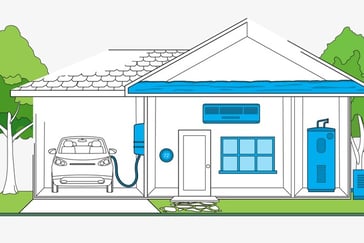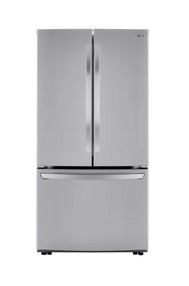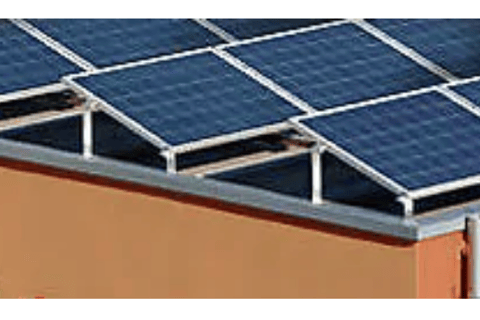Tax Benefits for Home Energy Improvements
The Inflation Reduction Act includes a variety of energy savings initiatives aimed at reducing home energy consumption
7/1/20233 min read
The Inflation Reduction Act incorporates various energy savings initiatives aimed at promoting sustainable practices and reducing energy consumption. In addition to the environmental and cost benefits, this recently enacted legislation also offers significant federal tax benefits to consumers who take advantage of these initiatives by upgrading their home to increase its energy efficiency. This article will explore the key tax incentives provided by this legislation and their potential impact on your finances.
Residential Energy Efficiency Tax Credit
One of the major provisions of the Inflation Reduction Act is the extension and enhancement of the Residential Energy Efficiency Tax Credit. Under this program, taxpayers who make qualified energy-efficiency improvements
to their homes can claim a tax credit. The credit is a direct reduction of the amount of tax owed, providing a valuable financial incentive for energy-saving upgrades.
The Act increases the maximum credit amount and expands the range of eligible expenditures. Homeowners can now receive a credit of up to 30% of the cost of qualifying improvements, including energy-efficient
windows, doors, insulation, HVAC systems, and solar panels. The maximum credit cap has been raised to $2,000 for eligible expenses.
Energy-Efficient Appliance Credit
To encourage the purchase of energy-efficient appliances, the Inflation Reduction Act introduces an Energy-Efficient Appliance Credit. This credit allows taxpayers to claim a percentage of the cost of eligible appliances as a tax credit. The credit rate varies depending on the efficiency of the appliance, ranging from 10% to 30% of the purchase price.
The Energy-Efficient Appliance Credit covers a wide range of appliances, including refrigerators, dishwashers, washing machines, and HVAC systems. By incentivizing the purchase of energy-efficient appliances, the Act aims to reduce energy consumption and promote sustainable consumer choices.
Alternative Fuel Vehicle Credit
The Inflation Reduction Act also provides tax incentives for consumers who choose alternative fuel vehicles. The Act extends and expands the Alternative Fuel Vehicle Credit, which applies to both electric vehicles (EVs) and plug-in hybrid electric vehicles
(PHEVs). Taxpayers can claim a credit ranging from$2,500 to $7,500, depending on the battery capacity and vehicle size. This credit helps offset the higher upfront cost of purchasing an alternative fuel vehicle, making them more affordable and accessible to a broader range of consumers. By promoting the adoption of EVs and PHEVs, the Act aims to reduce greenhouse gas emissions and dependence on fossil fuels.
Residential Renewable Energy Investment Credit
To incentivize the use of renewable energy sources, the Inflation Reduction Act includes an extension and enhancement of the Residential Renewable Energy Investment Credit. This credit applies to the installation of residential solar energy systems, geothermal heat pumps, small wind turbines, and fuel cells.
The Act increases the credit rate for qualified expenditures, allowing taxpayers to claim a credit of up to 26% of the installation cost. The credit can be applied to both primary residences and secondary homes. By promoting the adoption of renewable energy technologies, the Act encourages homeowners to reduce their carbon footprint and contribute to a cleaner, more sustainable energy future.
As taxpayers embrace these energy-saving initiatives, they not only benefit from reduced energy consumption and lower utility bills but also contribute to a more sustainable future for generations to come.








Grady Property Inspections 36225 Detroit Road #89, Avon, OH 44011 440-823-9998